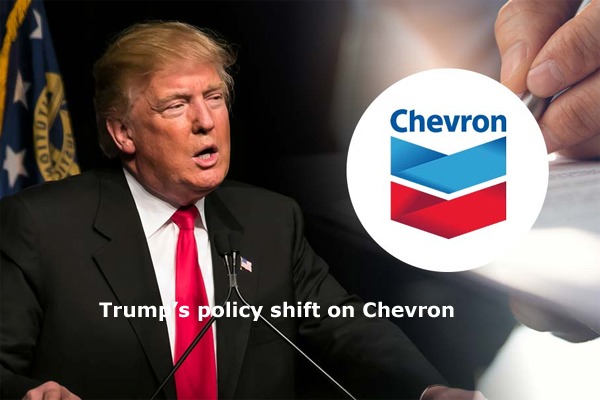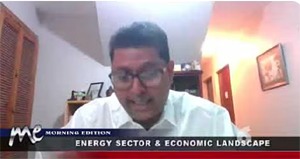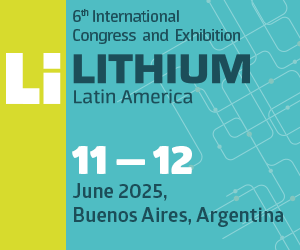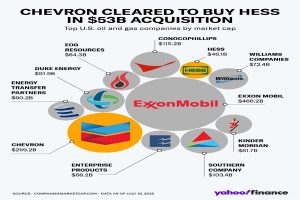Energy Over Ideals? Chevron’s quiet return to Venezuela’s oil fields underscores a broader recalibration in U.S. foreign policy—where energy imperatives eclipse ideological commitments.

EnergiesNet
PHOENIX, AZ
EnergiesNet.com July 25, 2025
Chevron’s Return to Venezuela: Strategic Shifts and Shadows of Realpolitik.
In a marked reversal of prior policy, the Trump administration has authorized Chevron to resume oil operations in Venezuela—a decision laden with economic opportunism and political calculation. This move not only reopens a key chapter in U.S.-Venezuela energy relations but also signals an evolution in Washington’s posture toward regimes it once sought to isolate.
The timing is not coincidental. The decision trails high-level discussions involving Trump, Senator Marco Rubio, and senior advisors, and was bookended by a prisoner exchange that secured the release of 10 Americans detained by the Maduro government. The gesture—rare and delicate—seems to have cracked open a channel of negotiation long frozen under the weight of ideological deadlock.
Chevron, the only major U.S. company still operating under limited license in Venezuela during the sanctions era, now reclaims a foothold in one of the world’s most oil-rich nations. Yet the updated agreement reportedly prevents any direct financial benefit to the Maduro regime—no royalties, no taxes—maintaining the optics of principled engagement while safeguarding U.S. strategic interests. Unlike the general licenses previously issued—whose terms were publicly disclosed and subject to broader industry interpretation—the current arrangement operates under what is apparently a private license that will not be disclosed to the public, and yet to be published by OFAC. This marked shift in transparency raises serious concerns about accountability and public oversight, especially given the geopolitical weight of Chevron’s reentry and the potential for off-ledger flows or informal barter arrangements outside conventional fiscal reporting.
As Francisco Monaldi, director of the Latin America Energy Program at Rice University, noted:
“If Maduro isn’t getting paid, why would he allow the barrels to go to the U.S.? He can send them to China and get paid at a discount—but better than zero,” the WSJ reported.
The contradictions abound. Trump’s endorsement of the deal flies in the face of Rubio’s longstanding opposition to any normalization with Maduro. Yet it reflects a broader pattern in Trump-era diplomacy: leveraging economic access as a tool of influence, even when it requires pragmatic recalibration of former hardline positions. Behind closed doors, the administration’s calculus centers on preempting Chinese and Russian energy penetration while securing American energy dominance in the hemisphere.
And the stakes extend well beyond oil. Venezuela’s mineral reserves and strategic location make it a prize in a shifting global chessboard. Chevron’s recent $53 billion acquisition of Hess—and thereby access to Guyana’s Stabroek Block—further entangles corporate interests with sovereign disputes, as Maduro continues to assert claims over Guyanese territory in a century-old border feud.
Still, experts question the sustainability of the deal. If Maduro is denied fiscal gain from the Chevron arrangement, what incentive remains? With China offering alternative markets—albeit discounted—Venezuela may hedge its bets, rerouting crude through transshipment hubs despite threats of U.S. tariffs. And as production lingers between 900,000 and 1 million barrels daily, Venezuela’s capacity to meet external demand remains uncertain.
Yet beneath the transactional surface, a subtle diplomacy is in motion. Grenell’s earlier trip to Caracas and Trump’s backchannel coordination with immigration advisors signal a blending of oil policy with migration management. Weekly deportation flights and humanitarian exchanges suggest a framework of cooperation, however fragile, that could reshape bilateral engagement in the year ahead.
Maduro’s public thanks to Trump, Rubio, and Grenell—while perhaps strategically calculated—underscores the unlikelihood of complete decoupling. With eight million migrants displaced, energy access constricted, and regional tensions rising, the need for functional dialogue may outweigh the inertia of ideology.
Chevron’s return, then, is not merely a corporate event—it is a bellwether for a larger, complex dance between pragmatism and principle, influence and concession, sovereignty and survival.
Sources: WSJ, Bloomberg, Reuters, IA
Written by Elio Ohep, EnergiesNet
EnergiesNet.com 07/25/2025














